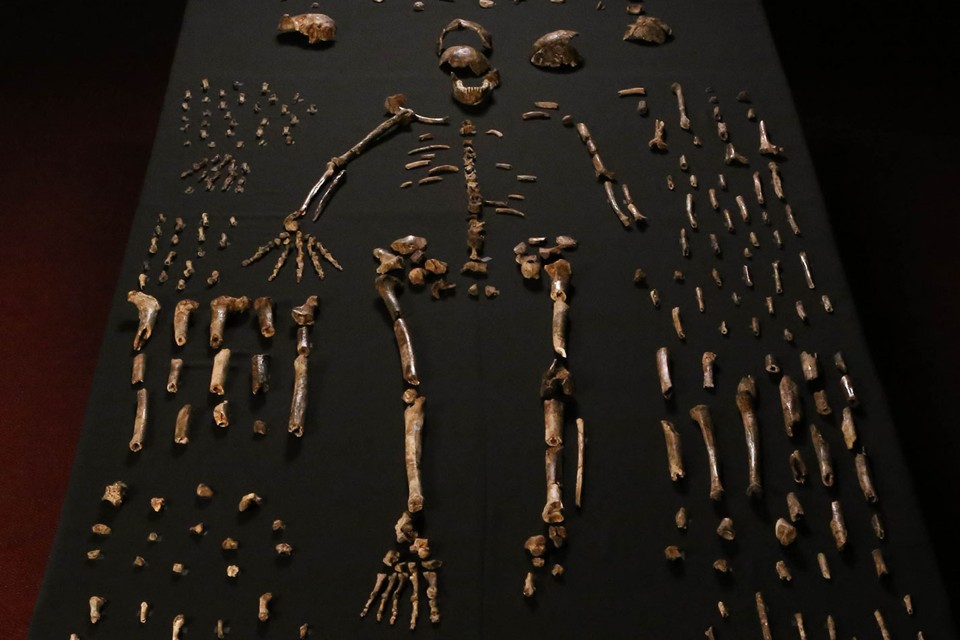
"The simple answer is: Because dating fossils is really difficult. Scientific papers and news reports about new fossils so regularly come with estimates of age that it’s easy forget how hard-won such data can be. I asked John Hawks, a biologist at the University of Wisconsin and one of the heads of the Rising Star expedition, to talk me through the various available methods—and why they have been difficult to apply to the latest finds." (Image: John Hawks)

"This is a story about viruses that became domesticated by parasitic wasps, which use them as biological weapons for corrupting the bodies of caterpillars, which in turn can steal the viral genes and incorporate them into their own genomes, where they protect the caterpillars from yet more viruses. Evolution, you have outdone yourself with this one." (Image: USDA)

"Unlike rival sequencers, which are as big as microwaves or fridges, the MinION is the size of a chocolate bar. Cowley had three, and she could clutch them all in a single fist. These devices quite literally bring the power of modern genomics to the palm of your hand. And at a cost of just $1,000, they herald a new era where sequencing moves away from well-equipped institutions and into places where it is most needed, from hospitals to epidemic-afflicted hot zones. Rather than sending samples from outbreak sites to special labs, scientists like Cowley will be able to take the labs to the outbreaks." (Image: Sophie Durraffour)
More good reads
This piece on
dead, dying, and resurrecting trees is quintessential Helen Macdonald: nature writing suffused with poetry; the world around us, and the emotions it provokes within us.
Love this piece. Ostensibly about whether an
ancient plague was Ebola, but actually about how we'd even tell. By Simon Davis
Really good piece on a continuing study on the
evolution of lung cancer, by Henry Scowcroft
Remember that paper on the Holocaust,
epigenetics, and how stress cascades across the generations? It’s rubbish. Read this excellent piece by Ewan Birney on what it means and doesn’t mean.
Ann Finkbeiner looks at indigenous knowledge of
Cascadia quakes, and why local people refuse to leave the region.
The women-led
Black Mamba ranger unit has reduced poaching in South Africa's Kruger National Park by 3/4
Researchers Have Made A
Major Cancer Breakthrough You’ll Somehow Never Hear About Again. Once again, a parody site nails it better than most news outlets.
A wide-ranging piece on
science, philosophy, and... look, just read it. By Simon Critchley.
Very interesting piece on the debate about testing Ebola vaccines *
for chimps* on chimps. By Caleb Hellerman
"Q: [Would it have] been better if we never discovered hydrothermal vents? A: That question haunts me" Brandon Keim interviews Andrew Thaler on
deep-sea mining
More good links will be released in tomorrow's linkfest on Not Exactly Rocket Science.
You can also follow me on Twitter, find regular writing on my blog. If someone has forwarded this email to you, you can sign up yourself.
And that's it! Thanks for reading.
-Ed